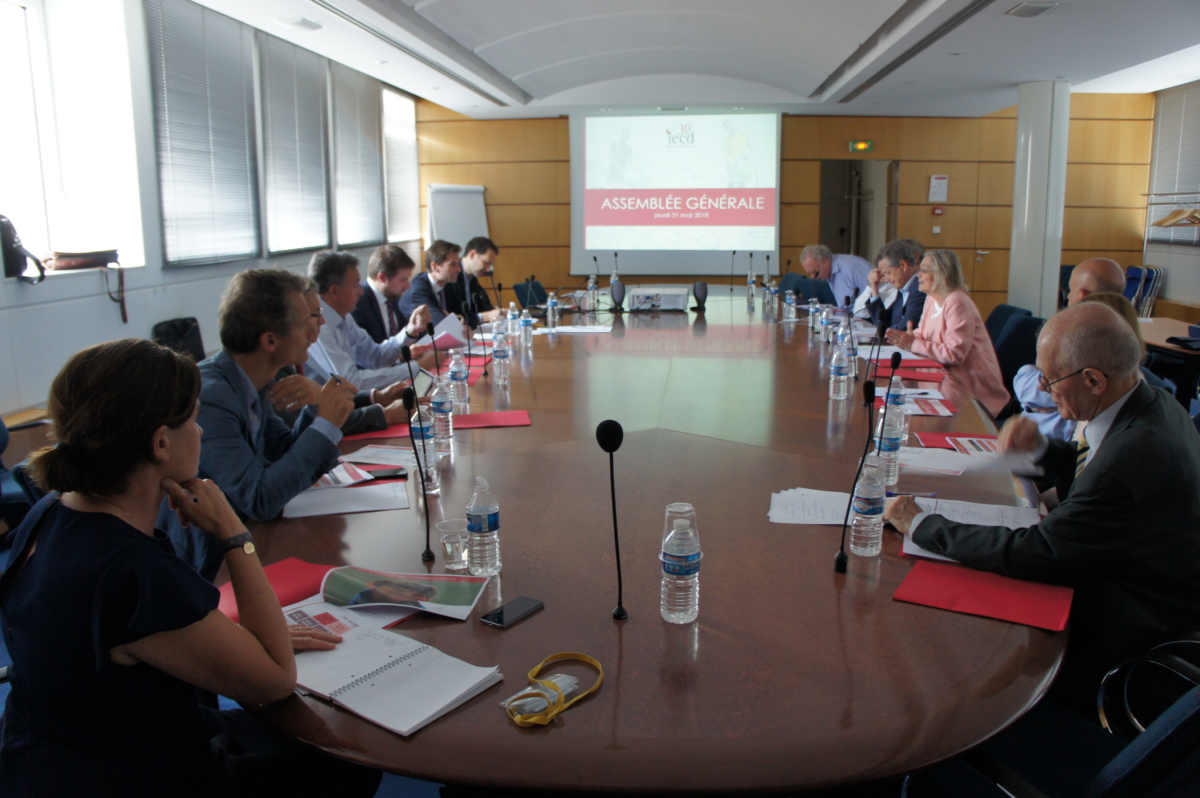About the IECD
79
development projects in Sub-Saharan Africa, in Madagascar, the Mediterranean basin, and Southeast Asia
18
countries
400
local partners
411
employees, including 362 in the operations countries
€ 26.5 M
operating budget
Key figures 2024
OUR GOVERNANCE
IECD is a not-for-profit organisation whose mission is recognised as being in the public interest.
Created in Strasbourg on January 8th 1988, the IECD is governed by Alsace-Moselle law and is written into the registry of associations of the District Court.
The IECD is directed by a Board of Trustees, which consists of 15 members who meet four times a year. The Board of Trustees defines the strategy and direction of the association and controls the general mandate for ongoing management as granted to the Executive Director. It legally binds the association and prepares the ordinary, and extraordinary, general meetings.
The Board is comprised of the President, Vice President, Treasurer and Secretary of the IECD. It meets every two months and is responsible for carrying out the decisions taken by the Board of Trustees.
The General Meeting brings together all IECD’s active members once a year. It appoints administrators, approves the annual activity report that is delivered by the President, discharges the accounts after the presentation of the financial statements by the Treasurer, and validates the budget presented by the Board of Trustees.
THE BOARD
THE BOARD
President:
Marie-José NADAL
Vice – President:
Jean-Noël LUCAS
Secretary – General:
Hervé RUDAUX
Treasurer:
Michel BARONI
Xavier BOUTIN
Bernard DAVOUST
Amaury DUCHON
Caroline de CARTIER
Christian MALSCH
Emmanuel RIGAUX
Vanessa WARTHER
FINANCIAL RESOURCES
In 2024, the activity level of the IECD increased to €26.5 million, compared to €25.8 million in 2023.
In 2024, 42% of raised funds came from private donors, businesses and business foundations, endowments, associations, and philanthropic foundations. Public funds came from, among others, l’Agence française de développement, from the European Union, from UNICEF, etc.
Furthermore, individual donors support the IECD as a whole or support particular projects.
A financial plan is drawn up for each project over an average duration of three to five years. The necessary financial partnerships are developed accordingly, most often based on co-financing combining private and public funding.
Since its creation in 1988, the IECD has held itself to the highest standards and full transparency in managing its financing and expenditure. Monitoring, planning, and internal performance tools have been put in place to ensure efficient management of resources. In parallel, the IECD regularly undergoes technical and financial evaluations of its projects and internal and external audits.
Every year, an independent auditor certifies the accounts. the IECD then presents them at the Annual General Meeting of its members and reports to the regulatory oversight authorities. In 2024, they were certified by the firm HLP Audit, 3 chemin du Pressoir Chenaie – 44186 Nantes Cedex 4 – France.


